Insieme Abbiamo Avvolto I Nostri Segreti in una Foglia
Together We Wrapped Our Secrets in a Leaf
Venice, Italy 2021—2024
This project explores the topic of gender-based violence, its resistance, and the wider demand for women’s rights with a geopolitical focus on the North-Eastern part of Italy. The research began when I approached the anti-violence center, called the Centro Donna (Woman’s Centre), based in the town of Mestre, in the province of Venice. This work comes in the form of a publication, which contains over 50 images produced and collected during the field research. The photographic documentation is encompassed by the written component that collects personal accounts of the participants, which are aligned with feminist writings to question the complexity of silencing gender-based violence. By weaving archival images from the 1970s with contemporary documentation, I research in what ways images can become a form of collective feminist memory.
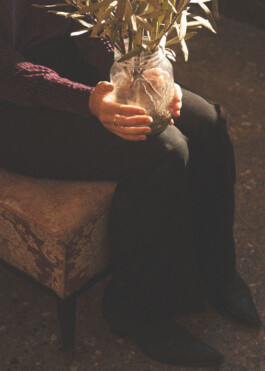
→ From the chapter An Archipelago of Conversations.

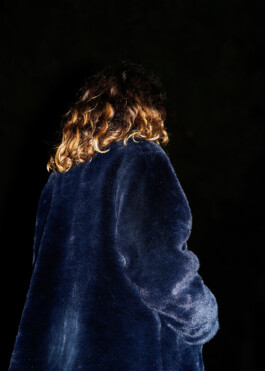

→ From the chapter An Archipelago of Conversations.
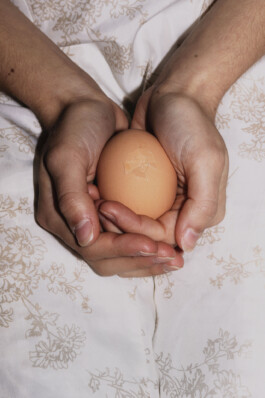
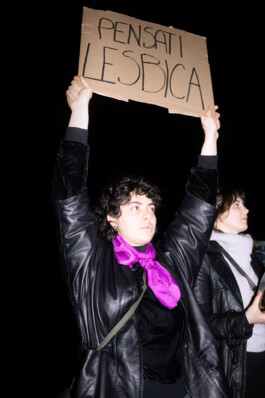
→ From the chapter An Archipelago of Conversations.

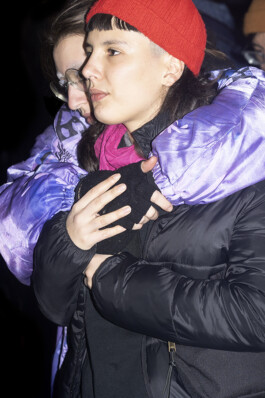
During my travels in Italy, I photographed two different protests that took place in Bologna, for the International Day for the Elimination of Violence against Women, on the 25th of November 2022, and in Venice for the International Women’s Day, on the 8th of March 2023. With this documentation, I intend to stretch the focus of the work to different feminist voices which are active in the Italian landscape.
"Today, like every other day, we are convinced anti-fascists. On days like these one, however, it is difficult not to be taken down by the grief that celebrates the memories of our sisters who died because of a system that those same institutions tolerate and nurture. Violence is our poisoned daily bread: rapes, femicides. We are not supported, because it is not with advertising campaigns that we will come out of violence, not even with the sensationalism of a press that re-victimises us and abuses violence a second time on our bodies. We will emerge from violence together, just as together in a few decades we are disruptive, emerging from the cage in which patriarchy has locked us for millennia, choosing to enjoy and fight by having abortions, by having children only if we decide to do so, by educating ourselves, by dancing…”
—Non una di meno, Bologna 2022
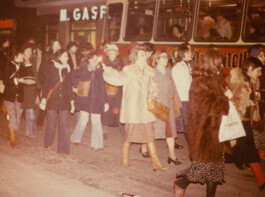

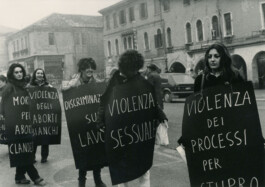
→ From the Archive Donnateca. Centro Donna Mestre, Italy. Photographer Anna Falchi
From the Archive Donnateca. Centro Donna Mestre, Italy. Photographer Anna Falchi
From the Archive Donnateca. Centro Donna Mestre, Italy. Photographer Mannig Gurekian
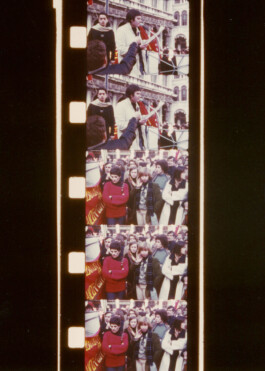
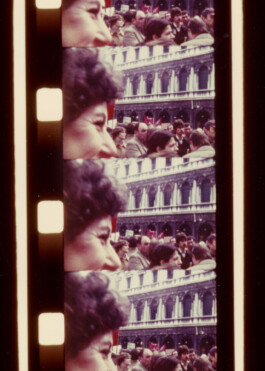
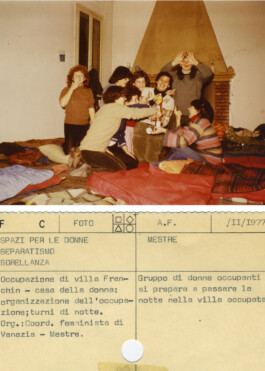
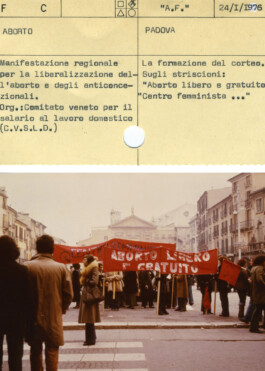
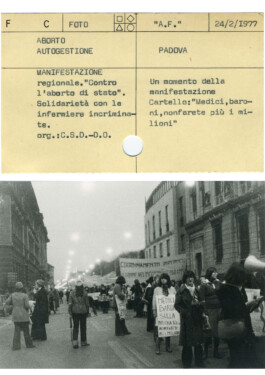
→ By Maria Pia Miani
By Maria Pia Miani
By the photographer Anna Falchi
By the photographer Anna Falchi
By the photographer Anna Falchi
The Centro Donna has been the catalyst point of this research in many ways. The history of the Centro Donna finds its roots from a militant wave of women that squatted, on the 13th of November 1977, an abandoned mansion called Villa Franchin in the town of Mestre. During the occupation, which lasted for over a month, various workshops were taking place and the activities were frenetic: flyers and petitions were printed and distributed in the neighbourhood. The women who were occupying the Centre made demands for the building to become a woman-only place:
“A place to come out of isolation, where we can build our identity as people in a collective dimension where we can build our point of view, as women, on all aspects of the reality around us, where we can work, study, organise ourselves and build together the collective strength we need to have an impact on reality.”
In June 1979, the outbuildings of Villa Franchin became what is now called the Centro Donna. During this time, women were radically criticising the patriarchal society; they were not only fighting for gender equality but for the freedom of self-determination. Students, factory workers, housewives, and teachers discovered the pleasure of being together amongst women discussing the problems that concerned them in both the public and private spheres.
Following the subversive activism of those women, the Centro Donna is now a public institution that stands at the frontline in resisting gender violence in the Venitian province.
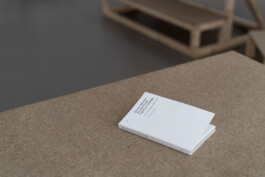
→ Printed publication Together We Wrapped Our Secrets in a Leaf . Designed by artist Carmen Dusmet Carrasco
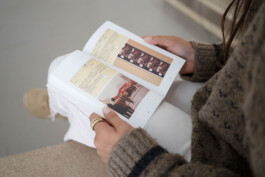
Insieme Abbiamo Avvolto I Nostri Segreti in una Foglia
Together We Wrapped Our Secrets in a Leaf
Venice, Italy 2021—2024
This project explores the topic of gender-based violence, its resistance, and the wider demand for women’s rights with a geopolitical focus on the North-Eastern part of Italy. The research began when I approached the anti-violence center, called the Centro Donna (Woman’s Centre), based in the town of Mestre, in the province of Venice. This work comes in the form of a publication, which contains over 50 images produced and collected during the field research. The photographic documentation is encompassed by the written component that collects personal accounts of the participants, which are aligned with feminist writings to question the complexity of silencing gender-based violence. By weaving archival images from the 1970s with contemporary documentation, I research in what ways images can become a form of collective feminist memory.

→ From the chapter An Archipelago of Conversations.



→ From the chapter An Archipelago of Conversations.


→ From the chapter An Archipelago of Conversations.


During my travels in Italy, I photographed two different protests that took place in Bologna, for the International Day for the Elimination of Violence against Women, on the 25th of November 2022, and in Venice for the International Women’s Day, on the 8th of March 2023. With this documentation, I intend to stretch the focus of the work to different feminist voices which are active in the Italian landscape.
"Today, like every other day, we are convinced anti-fascists. On days like these one, however, it is difficult not to be taken down by the grief that celebrates the memories of our sisters who died because of a system that those same institutions tolerate and nurture. Violence is our poisoned daily bread: rapes, femicides. We are not supported, because it is not with advertising campaigns that we will come out of violence, not even with the sensationalism of a press that re-victimises us and abuses violence a second time on our bodies. We will emerge from violence together, just as together in a few decades we are disruptive, emerging from the cage in which patriarchy has locked us for millennia, choosing to enjoy and fight by having abortions, by having children only if we decide to do so, by educating ourselves, by dancing…”
—Non una di meno, Bologna 2022



→ From the Archive Donnateca. Centro Donna Mestre, Italy. Photographer Anna Falchi
From the Archive Donnateca. Centro Donna Mestre, Italy. Photographer Anna Falchi
From the Archive Donnateca. Centro Donna Mestre, Italy. Photographer Mannig Gurekian





→ By Maria Pia Miani
By Maria Pia Miani
By the photographer Anna Falchi
By the photographer Anna Falchi
By the photographer Anna Falchi
The Centro Donna has been the catalyst point of this research in many ways. The history of the Centro Donna finds its roots from a militant wave of women that squatted, on the 13th of November 1977, an abandoned mansion called Villa Franchin in the town of Mestre. During the occupation, which lasted for over a month, various workshops were taking place and the activities were frenetic: flyers and petitions were printed and distributed in the neighbourhood. The women who were occupying the Centre made demands for the building to become a woman-only place:
“A place to come out of isolation, where we can build our identity as people in a collective dimension where we can build our point of view, as women, on all aspects of the reality around us, where we can work, study, organise ourselves and build together the collective strength we need to have an impact on reality.”
In June 1979, the outbuildings of Villa Franchin became what is now called the Centro Donna. During this time, women were radically criticising the patriarchal society; they were not only fighting for gender equality but for the freedom of self-determination. Students, factory workers, housewives, and teachers discovered the pleasure of being together amongst women discussing the problems that concerned them in both the public and private spheres.
Following the subversive activism of those women, the Centro Donna is now a public institution that stands at the frontline in resisting gender violence in the Venitian province.

→ Printed publication Together We Wrapped Our Secrets in a Leaf . Designed by artist Carmen Dusmet Carrasco
